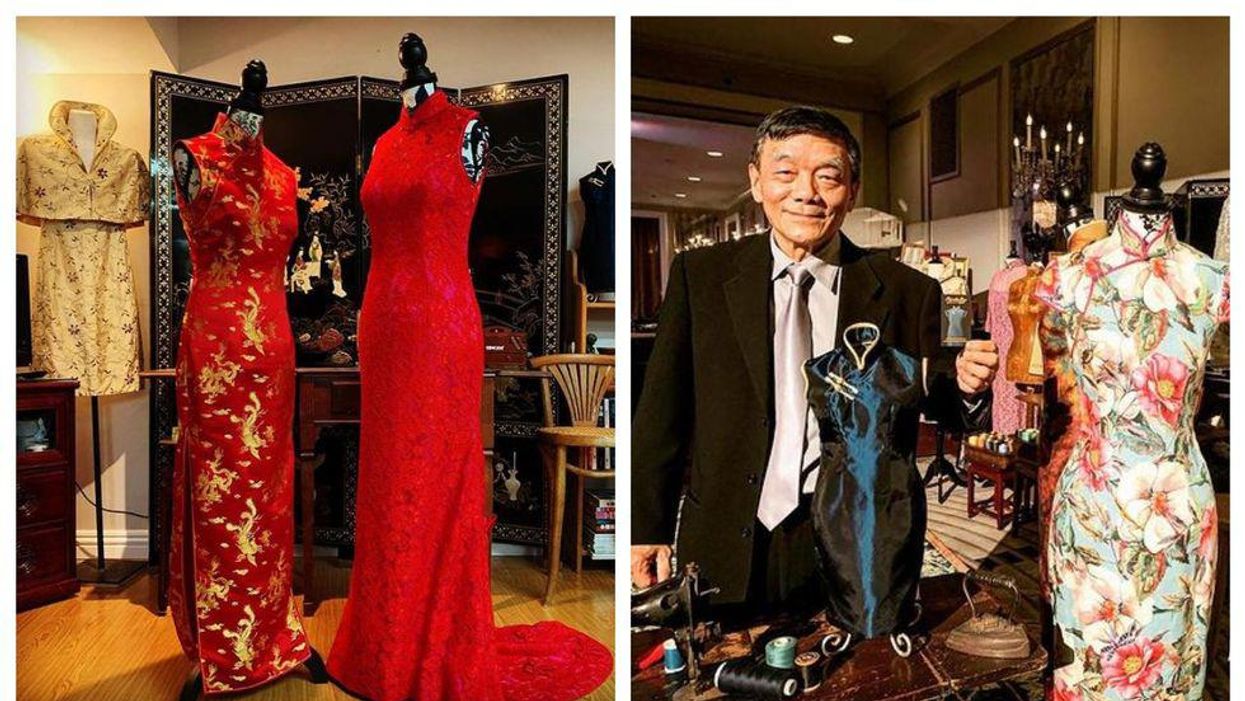A Guide to Mastering the Classic Chinese Dress
Introduction to the Cheongsam
The cheongsam, a traditional Chinese dress, has captivated the world with its elegance and cultural significance. This article aims to provide a comprehensive guide to understanding and mastering the art of wearing the cheongsam. As a symbol of Chinese heritage, the cheongsam tailor plays a pivotal role in ensuring the garment’s authenticity and beauty.

The Role of the Cheongsam Tailor
A cheongsam tailor is an artisan who not only understands the intricate details of the dress but also the cultural nuances it represents. According to Wikipedia, the cheongsam originated in the 1920s and has since evolved, reflecting the changing times and tastes. The tailor’s expertise is essential in selecting the right fabric, cut, and design that flatters the wearer’s figure and respects the dress’s traditional roots.

Understanding the Fit and Design
The essence of a well-tailored cheongsam lies in its fit and design. A cheongsam tailor must have a keen eye for detail, ensuring that the dress accentuates the wearer’s natural curves without compromising comfort. The design elements, such as the high collar, asymmetrical skirt, and delicate buttons, all contribute to the cheongsam’s allure. As stated by a renowned fashion designer, “The cheongsam is not just a dress; it’s a wearable piece of art that tells a story.”

Cultural Significance and Modern Interpretations
The cheongsam is steeped in cultural significance, representing the grace and strength of Chinese women. As society progresses, the cheongsam tailor must balance tradition with innovation, creating modern interpretations that appeal to a global audience. This delicate balance is achieved by incorporating contemporary elements while maintaining the dress’s traditional silhouette. As Baidu Baike explains, “The evolution of the cheongsam reflects the dynamic nature of Chinese culture and its ability to adapt and thrive in the modern world.”

Choosing the Right Cheongsam for Every Occasion
The versatility of the cheongsam is evident in its ability to be worn for various occasions, from casual outings to formal events. A cheongsam tailor can guide you in selecting the appropriate fabric, color, and embellishments to suit the occasion. For instance, a silk cheongsam in a muted tone may be perfect for a tea ceremony, while a more vibrant, embroidered design could be ideal for a wedding. As a fashion expert on Quora suggests, “The key to mastering the cheongsam is to understand its versatility and choose the right style for the right moment.”
Conclusion
Mastering the art of wearing the cheongsam is a journey of embracing cultural heritage and personal style. The cheongsam tailor is your guide on this journey, ensuring that each dress is a testament to the wearer’s individuality and respect for tradition. As you explore the world of cheongsams, remember that each dress is a story waiting to be told, and the right tailor can help you write your own chapter.







The cheongsam is a dress that can be passed down through generations, making it a valuable piece of family heritage. The cheongsam tailor’s craftsmanship ensures that each dress is made to last.
As someone who values sustainability, I appreciate that the cheongsam tailor can use eco-friendly fabrics. It’s a small but significant step in making this traditional dress more environmentally friendly.
I’ve always admired the cheongsam’s design, but I never knew the extent of the cheongsam tailor’s role in its creation. The article provides valuable insights into this fascinating craft.
The article mentions the cheongsam’s versatility, which is true. I’ve worn my cheongsam to both casual and formal events, and it always stands out. The cheongsam tailor’s guidance was crucial in selecting the right styles for each occasion.
The article does a good job of highlighting the cultural significance of the cheongsam. It’s important to remember that the cheongsam tailor plays a crucial role in maintaining this heritage.
I recently had a cheongsam made for a cultural festival, and it was a hit. The cheongsam tailor’s guidance in choosing the right design and fabric made all the difference.
I’m a young fashion enthusiast from the West, and I’ve always been fascinated by the cheongsam. The article does a great job of explaining the role of the cheongsam tailor in preserving tradition while also modernizing the design.
The cheongsam is a dress that can be worn by women of all ages, and the cheongsam tailor can create designs that suit different age groups. It’s a testament to the dress’s timeless appeal.